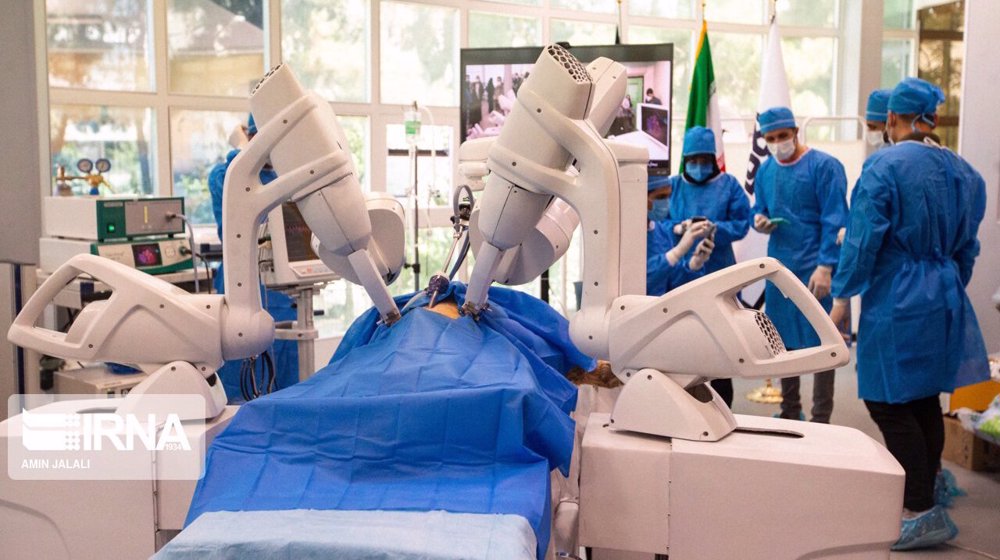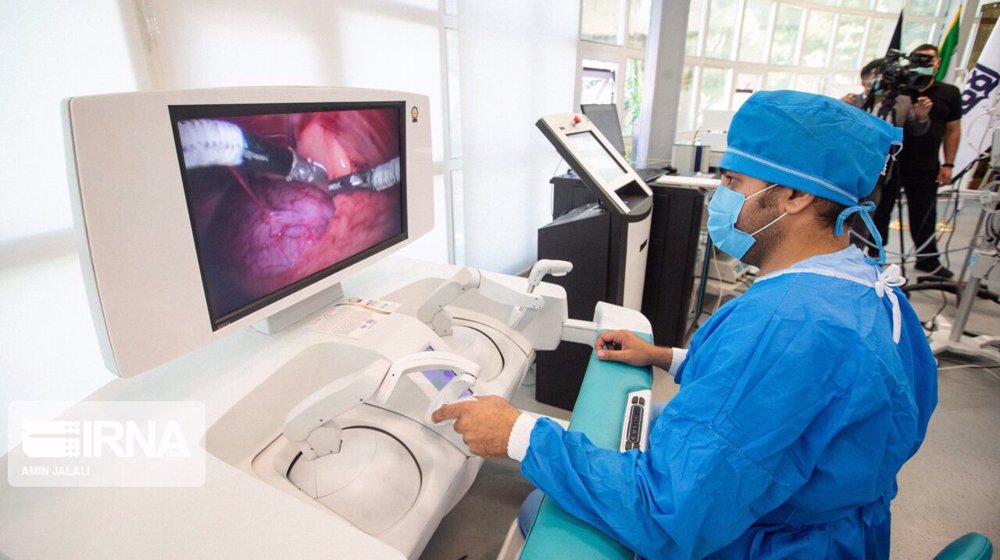Uyghur father in Australia fears for his wife and children trapped in Xinjiang
Exclusive by
Erin Handley
Posted SunSunday 19 JulJuly 2020 at 8:21am, updated SunSunday 19 JulJuly 2020 at 11:38am
Mamutjan Abdurehim has been silent about his wife's detention in Xinjiang for years. Now he's speaking out.(ABC News: Jack Fisher)
Share
Mamutjan Abdurehim hasn't been able to hug his wife or young children in almost five years.
Key points:
- The Sydney resident has been separated from his wife and children for almost five years
- China is accused of forced sterilisation and abortions for Uyghur women
- Speaking out is risky for Uyghurs in Australia, and has a toll on mental health
The 42-year-old, his short hair flecked with grey, often thinks about them as he sits in the park near his home in Sydney's western suburbs.
He's never spoken about his family's ordeal publicly before, hoping his silence might mean he could reunite in Australia with his wife Muherrem Ablet, his 10-year-old-daughter Muhlise and his five-year-old son Hikmet.
But a new development has "effectively crumbled" his hope of a quiet reunion. After years apart and fresh fears his wife has been incarcerated in one of China's mass internment camps, he's decided to speak out for the first time.
Mamutjan Abdurehim and his wife Muherrem Ablet with their two children in a restaurant in Malaysia in 2015, one of the last times they were together as a family.(Supplied)
The Sydneysider is a Uyghur, part of the Turkic-speaking Muslim ethnic minority facing persecution in China.
The Chinese Communist Party (CCP) has been internationally condemned, including by Australia, for its detention and surveillance of Uyghurs and other Muslim minority groups in the autonomous region of Xinjiang.
Allegations are rife about
forced sterilisation of Uyghur women,
forced labour in factories, and other measures amounting to what has been described as
cultural genocide.
The Chinese Government has
repeatedly denied its "vocational training centres" are concentration camps, and says the measures are necessary
to counter what it calls extremism and terrorism.
Mr Abdurehim holds grave fears for his wife and two children in the city of Kashgar. But the lack of certainty about their fate is one of the most painful parts of their separation.
"It's like psychological torture," he said.
"The core, the immediate family, is everything you have. Without them, you're like a dead person, just … you're lost."
How the family was separated
The family of four lived in Malaysia for almost three years, between the start of 2013 and the end of 2015, while Mr Abdurehim was studying a doctorate degree at university.
Ms Ablet lost her passport and the Chinese embassy in Kuala Lumpur issued her a one-off travel document, seen by the ABC, to go back to Xinjiang to renew it.
Muherrem Ablet and her two children in Kuala Lumpur, shortly before they returned to Kashgar.(Supplied)
At the time, this seemed like a normal procedure, Mr Abdurehim said. It didn't ring alarm bells. So in December of 2015, Ms Ablet travelled with the children back to Kashgar.
She was able to get a new passport relatively quickly in 2016, Mr Abdurehim said, but due to the family's financial situation she couldn't re-join him immediately in Malaysia.
In the months before the CCP's crackdown was fully-fledged, Ms Ablet indicated the situation was getting worse — she had been questioned by local authorities for wearing a hijab, and she started using facial expressions rather than words when she communicated with her husband.
Then, in April of 2017, Mr Abdurehim's parents told him his wife had been taken away.
His father, too, was detained for some time, according to Mr Abdurehim's mother.
"[My mother] told me not to call her anymore because receiving calls is dangerous … at that point in May [of 2017], she already knew that receiving calls from overseas would be one of the reasons to be to be taken away," he said.
Coming to Australia
Fearing for his safety in Malaysia,
which had been accused of deporting Uyghurs in the past, Mr Abdurehim fled to Australia.
"China was aggressively recalling students through their family members back home," he said, adding there were reports of forced deportations in some countries.
From then on, he only got information about his family in snatches.
Mamutjan Abdurehim said he desperately wanted to know what had happened to his wife.(ABC News: Jack Fisher)
About two months after her detention, Ms Ablet contacted Mr Abdurehim briefly, saying she was home for a day, but would be detained again.
"She messaged me saying that: 'I will be gone, and so if I cannot message you again, just wait until I can contact you.'"
That's the last message Mr Abdurehim got from his wife, in June 2017.
She then deleted her husband from her contacts and social media.
It was a "stressful two years, being in the dark," Mr Abdurehim said. But there was a flicker of hope.
Fighting for their culture

China is perpetrating a "cultural genocide" against Uyghurs in Xinjiang, but in Australia, they are dancing in defiance in a bid to save their culture.
Read more
In early May of 2019, he came across a video of his son posted to a relative's WeChat account. The last time Mr Abdurehim saw his son, he was six months old. Now, he was almost four.
In the video, seen by the ABC, the child says: "My mum has graduated!" looking at the sky in a state of euphoria.
"I could overhear her voice in the video," Mr Abdurehim said.
"I immediately downloaded it and watched it so many times.
"At last he was able to see his mum after two years … I was a bit relieved. That was a clear indication of her release."
After begging an acquaintance for information, they confirmed she had been released.
Mr Abdurehim didn't hear from his wife, but he said he was at least comforted by the thought that she and his children were back together.
His relief was short-lived.
Coded messages hint at dire situation
Mr Abdurehim told the ABC he suspected his wife was re-arrested in 2019 and could be detained for up to five years.
China's frontier of fear

Satellite imagery lifts the lid on the size and spread of China's internment camps, used to indoctrinate vast numbers of the Xinjiang region's Muslim population.
Read more
The truth is, he doesn't know for sure, and he'd like to be proven wrong. But from his limited contact and gleaning messages through coded words, it's what he's come to expect.
Mr Abdurehim said phrases like "not at home" and "in hospital" were sometimes used to hint that a person had been detained in a re-education camp.
When he asked a contact, a close friend's relative who knows his family, "how old" his wife was, the response came back: five years.
"I was crushed. That is a standard way of conveying information related to incarceration," he said.
"It effectively left my two children without parental care for the last three years and without me for five years."
He said the climate of fear fostered in Xinjiang meant it was difficult to get any reliable information about his family.
Contact with Uyghur family members overseas is well known as a reason to be targeted for re-education, according to Alim Osman, head of the Uyghur Association of Victoria.
Mr Osman said being unable to contact relatives was taking a toll on the mental health of the community in Australia.(ABC News: Jarrod Fankhauser)
Mr Osman confirmed these kinds of coded words and emojis were used to convey information.
"For example, if someone's wife or relatives or friends disappeared, they would say they went to study or they went to hospital. So that means they are rounded up in the concentration camps," he said.
Mr Osman said others in the Uyghur community in Australia had heard about their family members being arrested a second time after a stint in a re-education camp, and that often meant they were being put to work under forced labour conditions in Xinjiang's factories.
Australia urges China to 'cease arbitrary detention' of Uyghurs and other Muslims
The ABC's attempts to verify his wife's whereabouts, and if she has been charged with any crime or handed any sentence, were unsuccessful.
'Deeply disturbing'

Australia's Foreign Minister and members of the Uyghur community condemned a video that purports to show a mass transfer of Uyghur men — their heads freshly shaved —blindfolded with their hands tied behind their backs in Xinjiang.
Read more
Her name does not appear in relation to any legal case on China's Judicial Process Information website.
Emails to local government authorities and police in Kashgar went unanswered, and a Kashgar police officer hung up when they heard an ABC journalist was enquiring about a reported missing woman. They did not pick up further calls.
The Chinese embassy and consulates in Sydney and Melbourne did not respond to requests for comment by deadline, and calls to the media section rang out.
Australian Foreign Minister Marise Payne has condemned China's treatment of the Uyghurs.(AP: Rick Rycroft)
A Department of Foreign Affairs and Trade (DFAT) spokesperson indicated there wasn't much the Australian Government could do in Mr Abdurehim's case, as he and his wife are not citizens.
"The support the Department of Foreign Affairs and Trade can provide overseas to people who are not Australian citizens is very limited," they said in a statement.
"Under our bilateral consular agreement, China allows access only to Australian citizens who have entered China on an Australian passport."
They reiterated the
"deep and growing concerns" Foreign Minister Marise Payne articulated earlier this month about human rights abuses against Uyghurs.
"The Australian Government has serious concerns about the treatment of Uyghurs in China and has consistently urged China to cease the arbitrary detention of Uyghurs and other Muslim groups in Xinjiang," DFAT told the ABC.
Compelled to speak out, despite the risks
For Australia's Uyghur community, the not-knowing, and being cut off from contacting their loved ones, is part of their torment.
YOUTUBEFour Corners | Tell the World: How China is creating the World's largest prison
"Sometimes we just feel hopeless and it's had a huge impact on our mental health and well-being," Mr Osman said.
"Sometimes we couldn't sleep, because we just feel we couldn't help."
He said members of the Uyghur diaspora in Australia often didn't talk about their relatives being subjected to human rights abuses in China.
"If they talk about it, their relatives back home will pay the price," he said.
"So when people come out to talk about what's happening, they will take a huge risk for themselves, even here, and back home as well."
Uyghur man Mamutjan Abdurehim has lived in Australia for three years and wants to be reunited with his wife and two young children, who are trapped in Xinjiang.(ABC News: Jack Fisher)
For Mr Abdurehim, the decision weighed heavily on him, but he felt compelled to speak out.
"I'm suffering anyway, they are suffering anyway. So what's the point in hoping for a silent solution?" he said.
After being almost incommunicado for two years, Mr Abdurehim dared to call his mother's home in August last year, during Eid, a holy Muslim festival.
She picked up, but he could tell she was "extremely nervous". Speaking hastily, she said: "No, no, there were cadres at home."
Mr Abdurehim believes his children are being raised by his parents and in-laws. They have spent most of their young lives without their father present.
He wonders if his daughter can still read and write in the Uyghur language, or if those skills have faded at Chinese school.
Mr Abdurehim appealed to the Chinese authorities to release his wife, if she is in prison.
"Three years is too long for arbitrary detention of an innocent person based on religion or ethnicity," he said, let alone what he suspected was a longer detention for "imaginary crimes".
"She was just an ordinary woman like most of us, without any strong ideological convictions, and a kind mother of our two children.
"All I want is the freedom of my wife and children and the reunion of my family."
Space to play or pause, M to mute, left and right arrows to seek, up and down arrows for volume.
WATCH
Duration: 3 minutes 58 seconds3m 58s
China launches 'propaganda blitz' against Uyghur #StillNoInfo campaign.
Additional reporting by Samuel Yang and Bang Xiao
Posted 19 JulJuly 2020, updated 19 JulJuly 2020























